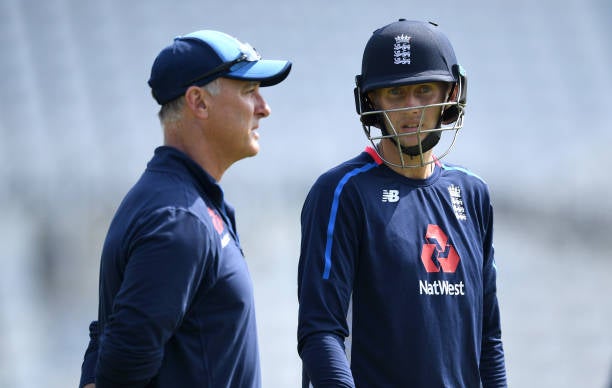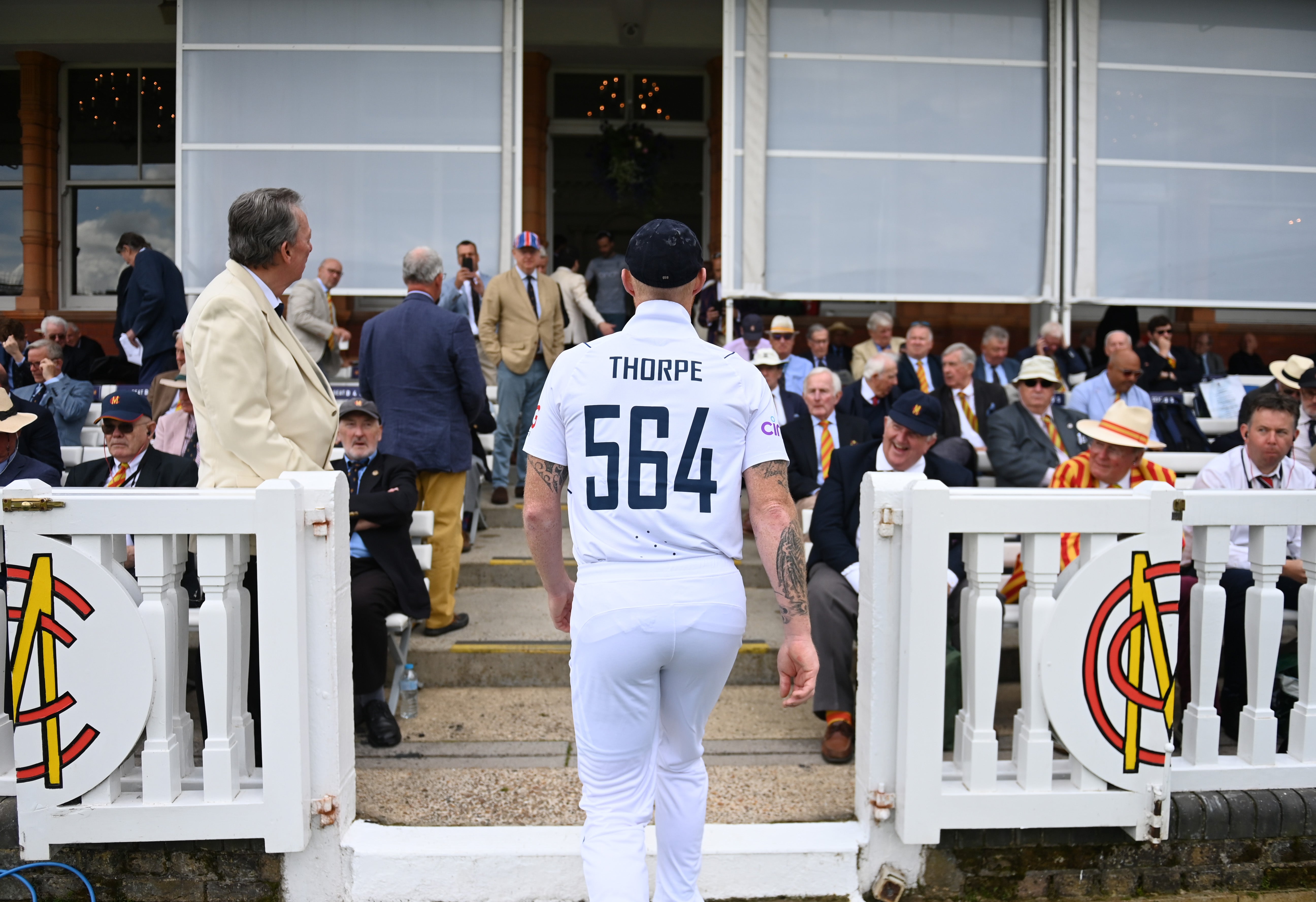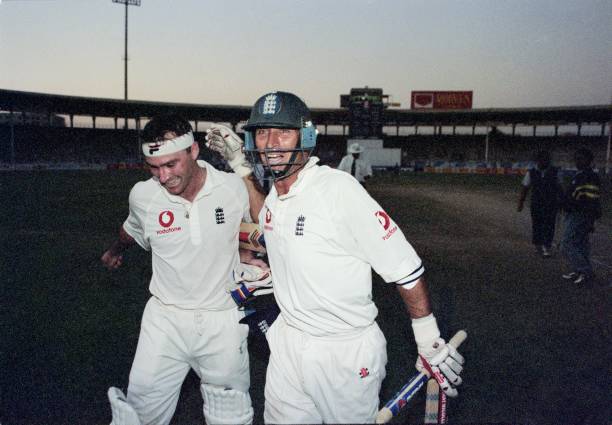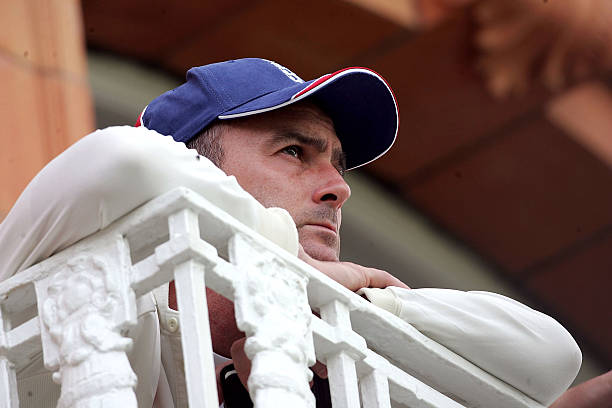Graham Thorpe was a light in the darkness of Nineties England cricket, as he dies aged 55
Graham Thorpe played 100 Tests for England and later went on to become the side’s batting coach

Your support helps us to tell the story
From reproductive rights to climate change to Big Tech, The Independent is on the ground when the story is developing. Whether it's investigating the financials of Elon Musk's pro-Trump PAC or producing our latest documentary, 'The A Word', which shines a light on the American women fighting for reproductive rights, we know how important it is to parse out the facts from the messaging.
At such a critical moment in US history, we need reporters on the ground. Your donation allows us to keep sending journalists to speak to both sides of the story.
The Independent is trusted by Americans across the entire political spectrum. And unlike many other quality news outlets, we choose not to lock Americans out of our reporting and analysis with paywalls. We believe quality journalism should be available to everyone, paid for by those who can afford it.
Your support makes all the difference.A dark day for English cricket brought visions of a different type of darkness, of pictures taken in the Karachi gloom, of Graham Thorpe’s trademark white headband providing a contrast to the background of the evening dusk. Thorpe’s unbeaten 64 amid the deteriorating light in 2000 – perfectly paced, eminently calm – brought a victory in both the third Test and the series against Pakistan. It was a seminal innings, perhaps the most celebrated of a man who played 100 Tests and ended with the highest average (44.66) of any England batter between Geoffrey Boycott and Kevin Pietersen.
And yet it was not even his finest performance that winter. Three months later in Colombo, England made 249 and 74-6 to beat Sri Lanka. Across two innings, his 10 teammates between them made 151 runs off the bat, losing 16 wickets. Thorpe made 113 and 32, both not out, playing a lone hand in alien conditions. It remains one of the greatest displays by any English batter in Asia. It probably always will.
Thorpe’s death at just 55 brought tributes that reflected an enduring influence as well as a sense of nostalgia. “Hero, mentor and so much more,” said Joe Root, offering an indication that Thorpe’s second career as a batting coach may be almost as meaningful as his first as the rock of England’s middle order. “The best left-handed batter I bowled to,” said the best left-arm fast bowler ever, Wasim Akram, and if the Pakistan legend may have forgotten Brian Lara when delivering that appraisal, it was nonetheless an indication of a virtuosity that could be camouflaged: by England’s losses in the first part of Thorpe’s time in the team – in his first seven years of Test cricket, he only made two centuries in winning causes – and by his unflashy style.


His friend and captain Nasser Hussain often referred to Thorpe as “the little genius”. Yet – and in contrast to the complications he experienced away from cricket – there was a kind of simplicity to his batting; or, at least, a capacity to make it look simple. He could ease the ball through the covers, as though it was destined to find the middle of his bat. The closest Thorpe came to flamboyance was with his flagship stroke – “that famous knee-up pull shot” in Stuart Broad’s description – which made Thorpe both a fine player of fast bowling and a specialist at counterattacking innings. They were often required. If memory suggests he seemed to spend much of the 1990s walking to the crease at 20-2, his second Test century, at Perth in 1995, came when he emerged at 5-2.
He had made a hundred on debut against Australia, too, in 1993 yet he was defined in part by an end that denied him an Ashes win: he was axed before the 2005 series, cruelly but correctly, with Thorpe’s back problems and the emergence of Pietersen altering the equation.
He finished with a century of sorts, the eighth man to reach 100 Tests for England, to add to the 16 hundreds he scored. If events in a tumultuous personal life, and amid an acrimonious divorce, affected mood and form, there was nonetheless a consistency as well as an excellence to his record: he averaged 45 at home, 44 away, 47 in Asia, 48 in Australia, 45 in Ashes encounters. His debut ton against Shane Warne was no fluke: in 1997, he made 138 and added 288 with Hussain at Edgbaston. His ability to play Muttiah Muralitharan was crucial in the series win in Sri Lanka in 2000-01.


He thrived in an age of outstanding bowlers, both seam and spin. For the first half of his career, he was defiant in an unsuccessful team; in the second half, he was a major factor in turning England into a winning side. After the travails of the 1990s, England’s 21st-century renaissance owed much to Thorpe. Ten of his centuries came in his last 40 Tests.
Mike Gatting infamously wondered what, apart from runs, did Thorpe bring to the party. Ultimately, though, he brought plenty of those – 6,744 – and much else besides, especially in the right environment. Hussain harnessed the awkward squad, the misunderstood, the misfits and the non-conformists; Andrew Caddick and Dominic Cork were other beneficiaries of his appointment. Michael Vaughan’s team then played with more freedom and flair. Thorpe averaged 56 under the Yorkshireman’s captaincy; in a glorious 2004, he made 951 runs at an average of 73.
There was a cathartic century in the fifth Test win against South Africa in 2003 after a year out of international cricket. There was a companion piece to Colombo, another example of his ability to flourish when everyone else was floundering, an unbeaten 119 against West Indies in Barbados when the next best score was Vaughan’s 17. There was further evidence of his composure in a run chase: needing 284 against a terrific New Zealand team in 2004, Thorpe walked in at 46-3 and anchored England to a four-wicket win with 104 not out.
There were innings that it seemed only Thorpe could play, but he did. And if focusing on them barely touches on his record in one-day cricket, or the County Championships he won with Surrey, or his coaching career, let alone off-field matters, those 100 Tests and that capacity for brilliance gave him a claim to greatness. Batting at No 4 and No 5, coming in against pace and seam all over the world, with his side in trouble or with games in the balance necessitated someone who could excel in the situation. And in Graham Thorpe, England had the batter for every situation.
Join our commenting forum
Join thought-provoking conversations, follow other Independent readers and see their replies
Comments